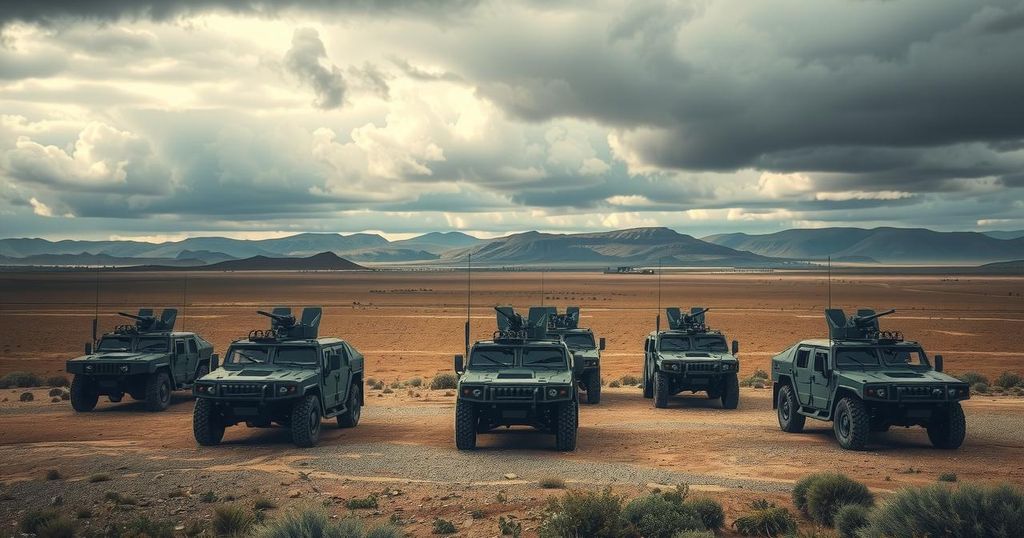Iran’s Supreme Leader has rejected President Trump’s request for nuclear negotiations, potentially heightening military tensions. Israel remains vigilant as it conducts military exercises and engages diplomatically with Syria’s Druze community, while discussions regarding Gaza and U.S.-Egypt relations evolve.
In a significant diplomatic development, Iran’s Supreme Leader Ayatollah Ali Khamenei has firmly rejected President Donald Trump’s proposal to renew negotiations regarding its nuclear program. This dismissal could potentially escalate military actions aimed at curtailing Iran’s nuclear ambitions. Khamenei characterized Trump’s message, reportedly delivered through the United Arab Emirates, as a deceptive strategy intended to manipulate global perceptions of Iran’s willingness for dialogue.
President Trump emphasized that there are fundamentally two ways to address Iran: through military means or by reaching a diplomatic agreement. He described Khamenei’s rejection as indicative of Iran’s reluctance to engage in meaningful negotiations, asserting that the situation presents a critical juncture where military options may become more viable.
In a show of military prowess, Israel and the United States conducted joint exercises earlier this month, including the participation of a B-52 Bomber, signaling a stern warning to Iran regarding its nuclear activities. Concurrently, President Trump commented on the situation in Gaza, clarifying that no residents would be forcibly removed as part of his previous proposal, which suggested resettling Gazans for reconstruction efforts.
Research indicates that a considerable number of Gazans may wish to migrate to safer countries as alternatives to their current conditions. Moreover, the United States has informed Egypt of impending reductions to its military aid, commencing in 2026, due to Egypt’s resistance towards the relocation of Palestinians to the Sinai Peninsula.
Israel has recently broadcasted footage demonstrating airstrikes within Syria, aimed at neutralizing potential military threats. Israeli Defense Minister Israel Katz expressed readiness to maintain a long-term presence in Syria, warning Syria’s Interim President Ahmed al-Sharaa of the Israeli Defense Forces’ surveillance capabilities to safeguard the northern regions of Israel.
Katz also affirmed Israel’s commitment to protect the Druze community in Syria, allowing them access to the Golan Heights for employment. In a noteworthy event, a delegation of 100 prominent leaders from Syria’s Druze population is expected to visit the Israeli-controlled Golan Heights, marking a rare occasion of cooperation between the two communities.
The rejection of negotiations by Iran’s leadership indicates a precarious situation that may prompt military interventions aimed at curtailing its nuclear program. This backdrop of escalating tensions is complemented by Israel’s military readiness and diplomatic overtures towards the Druze community, highlighting regional complexities. The evolving circumstances in Gaza and shifting U.S. policies towards Egypt further illustrate the intricate dynamics at play within this geopolitical landscape.
Original Source: cbn.com






